 |
||||||||||||||||||||||||||||||||||||||||||||||||||||||||||||||||||||||||||||||||||||||||||||||||||||||||||||||||||||||||||||||||||||||||||||||||||||||||||||||||||||||||||||||||||||||||||||||||||||||||||||||||||||||||||||||||||||||||||||||||||||||||||||||||||||||||||||||||||||||||||||||||||||||||||||||
 |
Follow NECE at twitter and linkedIn. The NECE Conference hashtag is #NECE2014. |
|||||
| NECE NEWS | ||||||
 |
NECE Conference 2014 1914 - 2014: European Prospects, European Conflicts – How can Citizenship Education Intervene?
16-18 October 2014, Vienna (Austria) |
|||||
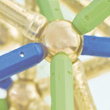 |
NECE Preparatory Workshop
30 March - 1 April 2014, Belgrade (Serbia) |
|||||
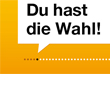 |
Focus Group Vote Match Europe: Wahl-O-Mat for the 2014 European Parliamentary Elections
From 28 April 2014 on, the German Federal Agency for Civic Education (bpb) Wahl-O-Mat will be online. The online tool has been designed primarily to interest young or first-time voters in the election process, inform them about important issues, and motivate them to take an active role in the vote. Up until the beginning of March, European citizens were allowed for the first time to make suggestions about which topics should be included in this European Wahl-O-Mat. Together with experts, a panel of 25 young and first-time voters then discussed and formulated the final Wahl-O-Mat topics at a workshop that took place in Cologne in early March.
|
|||||
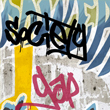 |
Focus Group “Hard-to-reach learners and youth”
The Focus Group has begun work in different project teams looking at conceptual and practical topics, including the state-of-the-art in current research designs and guiding questions on HTR groups, transnational spaces, training networks and ideas for a school-to-school network for multicultural schools. Organised in partnership with the SDSA (School Development Support Agency), the group will present and discuss the teams’ first results at a meeting in Leicester (UK) in July this year.
|
|||||
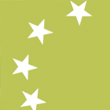 |
New learning activities within the CLEAR project
Three of the partner institutions within the CLEAR project have started activities based on the CLEAR learning methodology in the spring term. |
|||||
| EURO-MED COOPERATIONS | ||||||
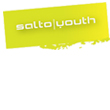 |
SALTO-YOUTH EuroMed
SALTO-YOUTH EuroMed supports and reinforces the Euro-Mediterranean Youth Cooperation by offering training sessions and events for youth workers, youth leaders and trainers active within the Youth in Action and EuroMed frameworks. The cooperative project compiles, publishes and disseminates good practices in education, methods and tools, while the EuroMed Youth Programme IV supports and strengthens participation and contribution of youth organisations and youth from the Euro-Mediterranean region to the development of society and democracy, and seeks to promote dialogue and understanding. It also promotes mobility among young people and understanding between peoples through three types of actions: youth exchanges, voluntary services and training/networking.
|
|||||
| GOOD PRACTICE: IDEAS & EXAMPLES | ||||||
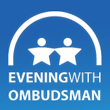 |
An Evening with an Ombudsman: Citizenship Education Praxis in Rural Communities
NECE partners from the Czech Republic, Poland, Slovenia, Estonia and Romania have come together to implement an international project focused on raising awareness of the EU Charter of Fundamental Rights. The project is co-funded by the European Commission’s DG Justice financial programme. Together with ombudsmen from national offices, its participants have identified frequent examples of citizen right violations. Based on those cases, theatre groups from each country then developed interactive performances involving scenarios in which someone seeks to fight for a particular right, but fails. The project deals with topics like access to social security, consumer rights, the right to environmental protection, the right to equal treatment/non-discrimination, access to public information, patient rights and employee rights. Taking place in rural communities, the performances are organised together with local partners such as public libraries. Every “Evening with an ombudsman” begins with a short film that introduces the topic, is followed by the interactive play, and concludes with a discussion involving representatives from the national ombudsman’s office.
|
|||||
| POLITICS & POLICIES & CITIZENSHIP EDUCATION | ||||||
|
New article: “The European dimension in citizenship education”
The European Law Review published an article by Kris Grimonprez entitled “The European dimension in citizenship education: unused potential of Article 165 TFEU” in February 2014. |
||||||
|
Europe´s World: Eurosceptic and Populist MEPs may be Just what the EU Needs
The barbarians are at the gates of the EU! Scarcely a day goes by in Brussels without a conference speech or high-profile article warning of legions of eurosceptic populists set to invade the European Parliament after this summer’s elections. The message is always the same: the malevolent newcomers will be bent on destroying the last 60 years of progressive European integration, and will be numerous enough to block parliamentary business and so create political chaos across the EU. But it’s worth thinking about the possibility of a very different scenario. The euro-barbarians’ arrival might actually have an unexpectedly positive effect. This article by Giles Merritt, Secretary General of Friends of Europe appears as an editorial in the Europe's World Spring 2014 issue. |
||||||
|
A New Narrative: Artists, Intellectuals and Scientists Stand up for Europe
In the presence of European Commission President José Manuel Barroso and German Chancellor Angela Merkel at the beginning of March, artists, scientists and intellectuals unveiled their final declaration on a "New Narrative for Europe". Its aim is to mobilize the cultural world and citizens for Europe by outlining why Europe matters, and explaining why people have to fight for Europe and against nationalism and populism. The project's cultural committee defines Europe as a state of mind – as a moral and political responsibility that is shared by citizens across the continent. The narrative seeks to remind us of common European values that continue to attract people from all over the globe. The final declaration can be viewed at “Mind and body of Europe". |
||||||
|
Volunteer Time Recognition (VTR) in Projects Supported by the European Youth Foundation
At its meeting in December 2013, the European Youth Foundation’s Programming Committee on Youth agreed on a method for recognizing the time volunteers donate to youth activities supported by the organisation. The method will have an impact on EYF grant applications and reports for work plans and international activities beginning on 1 April 2014, and on pilot activities that began on or after 1 January 2014. The EYF Secretariat would like to emphasize that the method is on a two-year trial period that will be assessed at the end of 2015. |
||||||
|
European Civic Forum Manifesto “Equality, Solidarity, Democracy for Europe”
In reaction to the financial and institutional crises that have taken place over the last several years, the European Civic Forum (ECT) is demanding new EU policies aimed at encouraging European citizens to take a more active role in the democratic process: “We are calling for public policies that give real substance to values claimed by the EU, which also pursue the collective objectives of solidarity, equality and democracy. Europe must rebalance finance and economy with social justice. Europe should allow the principles of equality, solidarity and democracy to rule the market. Europe should reintroduce a virtuous circle linking cohesive policies and active citizenship.” |
||||||
|
European Commission against Racism and Intolerance (ECRI) Publishes Reports on Germany and Belgium
The European Commission against Racism and Intolerance (ECRI) published its fifth report on Germany and Belgium in February 2014. ECRI is a human rights body of the Council of Europe. It is composed of independent experts who monitor problems involving racism, xenophobia, antisemitism, intolerance and discrimination on grounds of “race”, national/ethnic origin, colour, citizenship, religion and language (racial discrimination). |
||||||
|
Launch of the “Democratic Europe Now!” Campaign
The “Democratic Europe Now!” campaign – a critical platform focused on the current lack of inclusion of European citizens in political processes – is demanding a more democratic, participatory and transparent EU Convention process. The driving ideas behind the campaign are to ensure a higher level of debate, to better inform policymakers and to come up with more suitable and effective proposals for reform. |
||||||
|
European Platform for Festivals in the Field of Culture (EFFE)
Following an April 2013 call for proposals to co-finance a European Platform for festivals (EAC/S07/2013), the European Festivals Association project was selected and preparations are now being finalised. Views on ‘Europe for Festivals – Festivals for Europe (EFFE)', a European platform for festivals in the field of culture, were exchanged on 30 January with Commissioner Androulla Vassiliou during a conference at the Bozar Centre for Fine Arts in Brussels. |
||||||
| CALLS | ||||||
|
Call for Papers: 10th International CitizED Conference
The CitizED conference will be taking place at the University of Birmingham on 17-19 July 2014 under the theme “Raising standards in citizenship education: ideas, ideals and issues from around the world”. Its organizers are interested in the range of possibilities on offer for achieving high standards within citizenship education programmes. They also want to explore the ways in which citizenship education programmes contribute to the achievement of high standards in other curriculum areas, as well as how they affect whole school issues and other educational matters. The deadline for submissions is 31 March 2014.
|
||||||
|
Call for Applications: Youth Democracy Award 2014
The Youth Democracy Award is to be granted for the fifth time in 2014. By awarding a project that advocates Democracy or Democratizing in Europe in an outstanding way, it aims to appreciate and acknowledge the commitment of/to young people. The €3,000 award is based on the International Democracy Award. The deadline for submissions is 1 April 2014.
|
||||||
|
Radical Democracy: Video Challenge for an Open European Society
Upload your video! Doc Next Network is calling on media makers, social activists and critical thinkers to take a stand and share their views on Radical Democracy for Europe. How can we create an open and inclusive European society? Submit your media works to our video challenge and win €2,500! Deadline for entries is 13 April 2014.
|
||||||
|
Call for Papers: Youth in Europe – a Lost Generation?
The next issue of Open Citizenship will be looking at the challenges facing youth in Europe, and will seek to link these debates with citizenship. In particular we’ll be examining whether young Europeans are being given the chance to address the issues they face in their own ways, and whether this need is being recognised by the EU. By considering the concerns, needs and actions of young people, we hope not only to describe the current state of European citizenship, but also to build a picture of its potential future. The deadline for submissions is 23 June 2014. |
||||||
| EVENTS | ||||||
|
Exhibition: Perspectives on Europe through Comics from Algeria, Turkey and the UK
19 March-12 May 2014, Brussels (Belgium) |
||||||
|
Understanding Democracy in Europe
2-3 April 2014 in Berlin (Germany) |
||||||
|
International Conference: “Concepts of Citizenship and Participation – a European Comparison”
7-8 April 2014, Berlin (Germany) |
||||||
|
European Citizens' Initiative Day 2014: Building up Success
15 April 2014, Brussels (Belgium) |
||||||
|
Training in the Art of Hosting Transformation
6 - 7 May 2014 in Milan, 30 June - 1 July 2014 in Rome (Italy) |
||||||
|
Europe 14I14 - HistoryCampus Berlin
7-11 May 2014, Berlin (Germany) |
||||||
|
Take part! European Youth Event 2014
9-11 May 2014, Strasbourg (France) |
||||||
|
Symposium “Future of EU Cooperation in the Field of Youth in the Context of the New Erasmus+ Programme”
28-30 May 2014, Ljubljana (Slovenia) |
||||||
|
You can find more current publications on citizenship education in Europe at the NECE website. |
||||||